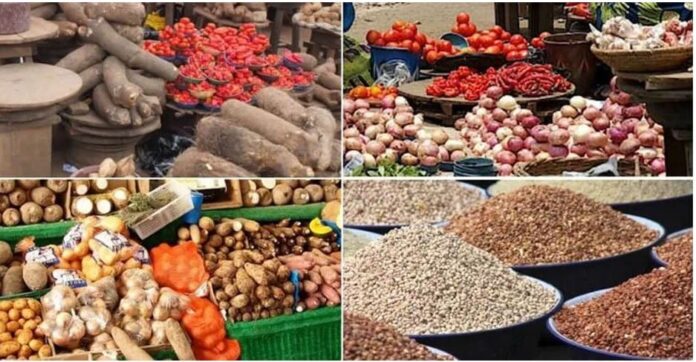Rising food prices may continue because of inadequate local output and other factors
By Jeph Ajobaju, Chief Copy Editor
Raging insecurity collaborated with rising prices of scarce diesel and petrol to drive up food prices to an unprecedent level in the first quarter of 2022 (Q1 2022).
“It is no longer news that food prices in Nigeria have risen to record levels in the last five years and Nigeria faces a food security crisis.
“In our previous Jollof Index, we have highlighted the causes, impacts, and policy solutions to the rising food prices in the country and the threat to food security,” SB Morgan said in a new report.
SB Morgan – a geopolitical intelligence platform – disclosed in the report, titled “The SBM Jollof Index Q4 2021 & Q1 2022; Geopolitics comes for dinner”, that it uses jollof rice to calculate food inflation.
The cost of cooking jollof rice for a family of five – the average family size, according to the National Bureau of Statistics (NBS) – is calculated using the prices of its ingredients, the report explained.
________________________________________________________________
Related articles:
Dangote seeks Abuja’s food plan amid Russian-Ukrainian war
Nigeria mounts up N3.1b food import bill as local production struggles
Bakers warn bread price will double – on higher costs
Higher transport costs raise food prices
_________________________________________________________________
According to reporting by The PUNCH, SB Morgan said
- It uses the cost of jollof rice ingredients as a gauge to measure food inflation across the country.
- The ingredients include rice, curry, thyme, seasoning, groundnut oil, turkey/chicken (poultry), beef, pepper, tomatoes, salt, and onions.
- The average cost of cooking a pot of jollof rice for a family of five rose 7.3 per cent from N8,007.50 in Q3 2021 to N8,595 in Q1 2022.
- In the face of limited food production due to insecurity, storage problems, and a growing population, importation of food would increase, and at higher costs, because of restrictions on foreign exchange (forex) and high black market rates.
- Food price surges are now commonplace as even markets in the outskirts are also witnessing increasing prices.
“The national average shows that prices rose in October and November, slightly declined in January, and began an upward trend in February and March.
“The spike in October and November is attributed to the increasing demand for food items in anticipation of the holiday season in December.
“Rice and groundnut oil account for this increase as companies purchased end-of-the-year welfare packages for their employees.
“In October, diesel prices began inching up on the back of supply shortages, and this was augmented by continuous concerns about insecurity which has been keeping more and more farmers away from their farms.
“In February and March, the issues that caused food prices to increase include a continued increase in diesel prices, petrol scarcity, and heightened insecurity.
“Petrol prices typically have a knock-on effect on the cost of transportation and food storage.”















